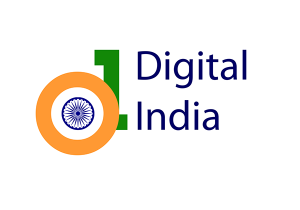
Titans in the world of technology have set their eyes on the Digital India project, whose blueprint was approved by the Centre in August. The project is expected to bring in investments of more than Rs 1,00,000 crore over the next three-four years.
Cisco a heavyweight in networking, has earmarked USD 1.7 billion for investment this year in India, while Google, Microsoft, HP, IBM, TCS and Wipro are also gearing up with their offerings, according to media reports.

Companies right now refrain from divulging any information about their investments in these projects, but many said information and communication technology or ICT requirement in projects like smart cities, depending on the size would be anywhere between five to six per cent of the total cost of the project.
Nasscom, the software industry body, has already conducted two consultation workshops with the ministry of urban development for IT services industry members on the ‘100 smart cities’ initiatives.

Cisco had entered the field of ‘smart city’ projects towards the end of 2007. It was in the middle of 2008 that a larger thrust was given to this concept in emerging regions. In India, it is a big focus area now. Even though ‘smart plus connected cities’ was a global initiative, the entire practice for the company is run from its Bengaluru centre. Some of the focus areas for Cisco to realise this concept are education, health care and energy.
Cisco has been working on several projects of smart cities across the globe. In India, some of the projects that it is working on are the 1,500-km Delhi-Mumbai Industrial Corridor. In Haryana, it has worked on a project of connecting local police stations, which has allowed them to share databases on criminals much easier. Some of its other tie-ups include working with city of Bengaluru, Pimpri-Chichwad in Pune and Kochi.
Similarly, IBM too has invested in laying the foundation for a smart city in India. One of the showcase projects that IBM is working on is Palava City in Mumbai, developed by the Lodha Group. The city spanning over 4,000 acres will incorporate IBM’s ‘smarter cities’ technology using advanced, data-driven systems to integrate information from all city operations into a single system to improve efficiency and deliver an enhanced quality of life for its residents.
“In India, we have been active with the smart city concept. But the uptake has been slow, especially over the last two to three years. I think there is a need for a change in the mindset. However, I do see a big interest at the government level. Everybody is realising that this is a concept that is essential for India,” said Rahul Sharma, partner/executive director, IBM Global Business Services, India/South Asia.
Sistema JSFC, which has been implementing smart city concepts in Russia and other countries too is considering the opportunity in India. “The smart city value depends on the city infrastructure development. For example, the Moscow smart city project’s budget was around USD 6.5 billion (the population is approximately 12 million people according to the official data as of 2013). The project budget for other Russian cities (such as Rostov, Ufa, Novosibirsk, Kazan with a population over one million) fluctuates from USD 130 to USD 650 million,” said a spokesperson from the company.
Apart from the global tech giants Indian IT players too are keen to provide services. Although TCS has not yet announced anything specific, it is already working with the Singapore Management University (SMU) for the research on ‘intelligent city’. The SMU-TCS iCity Lab, an SMU and TCS joint venture, is focused on research and development of intelligent solutions.
According to sources, Google has already made its intention clear on providing the last-mile connectivity with its helium-filled balloons. On the other hand, Microsoft is planning to use its ‘white space’ technology. It means use of frequencies allotted to a broadcasting service but is unused. The unused frequencies are considered to have potential for providing wireless broadband internet access. A device that can be used with such technology is called ‘white space device’.
Be a part of Elets Collaborative Initiatives. Join Us for Upcoming Events and explore business opportunities. Like us on Facebook , connect with us on LinkedIn and follow us on Twitter, Instagram.












